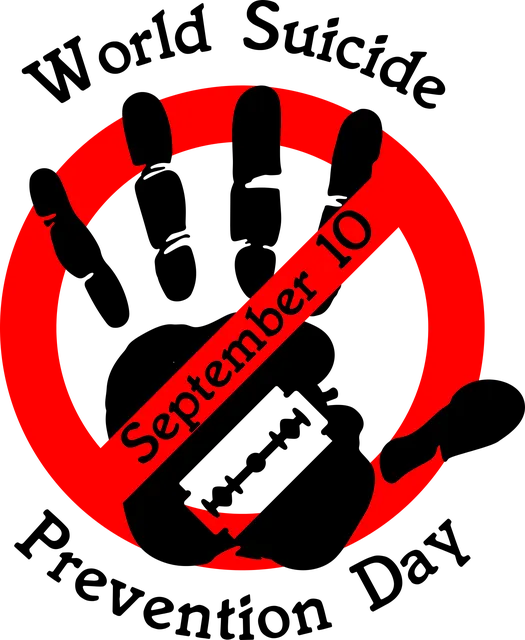Kaiser Permanente's training programs in Lone Tree provide comprehensive professional development for healthcare professionals, focusing on excellence and continuous learning across various specialties. These programs prioritize holistic employee well-being by offering crisis intervention guidance, burnout prevention strategies, and resilience-building exercises. Located in a vibrant corporate campus, Lone Tree serves as a model for integrating emotional healing processes into the workplace, cultivating an environment where employees cope with and excel under pressure. Through multifaceted resilience-building techniques, including mindfulness meditation and cognitive reframing, these programs enhance well-being, reduce trauma symptoms, and foster mental fortitude to navigate life's unpredictable situations.
Resilience is a vital asset in navigating life’s challenges, and the Resilient Factor Model (RFM) offers a powerful framework to build this strength. This article explores how organizations like Kaiser Permanente utilize RFM-based training programs to foster resilience. We delve into a case study of Lone Tree, showcasing the impact of these programs. Learn about essential components of effective resilience exercises and discover practical ways to implement RFM techniques in your daily life, inspired by innovative approaches like those at Kaiser Permanente.
- Understanding RFM: A Framework for Resilience
- Kaiser Permanente's Approach to Training Programs
- Lone Tree: A Case Study in Resilience Building
- Components of Effective Resilience Exercises
- Implementing RFM Techniques in Daily Life
Understanding RFM: A Framework for Resilience

Kaiser Permanente's Approach to Training Programs

Kaiser Permanente, a renowned healthcare organization, has been at the forefront of developing innovative training programs in Lone Tree and beyond. Their approach to employee development focuses on holistic well-being, recognizing that resilience is a key component in providing exceptional patient care. The organization offers tailored programs designed to enhance mental and emotional strength, specifically targeting healthcare providers who often face high-stress situations.
These training initiatives include Crisis Intervention Guidance, aiming to equip staff with effective strategies for managing challenging scenarios. Additionally, they prioritize Burnout Prevention Strategies for Healthcare Providers, as self-esteem improvement is vital in maintaining a positive work environment. By fostering resilience, Kaiser Permanente ensures their workforce remains dedicated and capable of navigating the demands of the healthcare industry.
Lone Tree: A Case Study in Resilience Building

In the heart of a bustling corporate campus, Lone Tree stands as a testament to resilience building—a living example of how Kaiser Permanente training programs can transform individuals and organizations. This case study illustrates the power of integrating emotional healing processes into workplace environments. By incorporating resilience-focused exercises, Lone Tree has fostered a culture where employees not only cope with but thrive under pressure.
The journey began with a recognition that mental health education programs design should move beyond traditional boundaries. Kaiser Permanente’s innovative approach aimed to strengthen the resilience of its workforce by providing tools for stress management and emotional agility. Through interactive workshops and personalized coaching, Lone Tree’s employees learned to navigate life’s challenges, ensuring they could return to their roles refreshed and energized. This proactive mental health initiative has since become a cornerstone of the organization’s overall well-being strategy.
Components of Effective Resilience Exercises

Effective resilience-building exercises are multifaceted and tailored to address various psychological and emotional aspects. One key component is Mood Management, teaching individuals strategies to regulate their emotions, especially during stressful situations. This involves techniques like mindfulness meditation, deep breathing exercises, and cognitive reframing, which enable folks to maintain a sense of calm and perspective.
Another vital element is Cultural Sensitivity in Mental Healthcare Practice, ensuring that the exercises are inclusive and respectful of diverse backgrounds. Incorporating this aspect helps reduce potential barriers and promotes trust, making the training programs at Kaiser Permanente in Lone Tree more accessible and effective. Additionally, integrating Mental Illness Stigma Reduction Efforts into these exercises fosters an environment where individuals feel safe to share their experiences, supporting open communication and community-building.
Implementing RFM Techniques in Daily Life

Implementing RFM (Resilience, Flexibility, and Mastery) techniques in daily life can significantly enhance one’s ability to navigate challenges and promote overall well-being, especially when learned through comprehensive training programs like those offered by Kaiser Permanente in Lone Tree. These exercises are not just theoretical; they provide practical tools for managing stress and anxiety, fostering resilience in the face of adversity, and cultivating a sense of control over one’s life.
The Stress Management Workshops Organization emphasizes that integrating RFM into daily routines can effectively reduce symptoms of trauma and enhance coping mechanisms. By incorporating flexibility and mastery exercises, individuals can build mental fortitude to better handle stress triggers and promote anxiety relief. Trauma Support Services within Kaiser Permanente cater to a wide range of needs, ensuring that everyone has access to the resources required to strengthen resilience and manage life’s unpredictable situations more effectively.
Resilience, a key component of navigating life’s challenges, can be cultivated through structured exercises like those employed by Kaiser Permanente and illustrated in the case study of Lone Tree. By understanding the RFM framework and implementing its techniques in daily life, individuals can enhance their ability to bounce back from setbacks. Effective resilience building exercises, as outlined in this article, empower people to embrace uncertainty, fostering a mindset that promotes personal growth and well-being.


